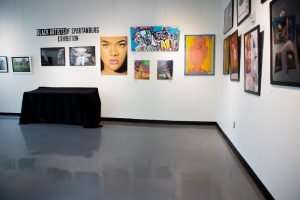


Salsa at Sunset

“Laurens County Heroes, Villains, and Heroines” – Laurens County Museum Revolutionary War Series
“Laurens County Heroes, Villains, and Heroines”
First Lecture in The Revolutionary War in the South Carolina Backcountry yearlong series by Battlefield Preservationist and Historian Durant Ashmore
The Revolutionary War in Laurens County was truly the crucible that forged our nation. This lecture will be a discussion of the civil war that raged in Laurens County with an emphasis on the remarkable Laurens County characters who involved themselves in the fight for freedom from the reign of the British monarchy and Parliament. Subsequent lectures will be on the first Tuesday of each month starting on August 3, 2021. Field trips to actual Revolutionary War battle and skirmish sites will be the following Saturdays after the August 3 lecture but not the July 20 lecture. Attendance will be limited and pre-registration is suggested by calling (864)681-3678. Suggested donation for lecture — $5 Laurens County Museum members; $10 non-members; 18 years and younger no donation.

Tourism in the Upstate: The Good, the Bad, and the Different
A conversation with Tim Todd, executive director, Discover Upcountry Carolina Association

Tim Todd, Executive Director of Discover Upcountry Carolina Association
Early on during the pandemic, we had Tim Todd as a featured speaker on one of our TATT Chats, talking about the ways the tourism industry had been hobbled by COVID-19. Several months later, we wanted to check in to see how he sees things changing and whether things are looking up for tourism in the Upstate.
Q: Tourism was hit hard and quickly by the pandemic. What signs do you see that things are recovering?
A: While there is still a long way to go before we see things return to pre-pandemic levels, I am encouraged by several things that indicate that the industry is on its way back. In early April, the number of hotel room nights sold was down 68.9% from the previous year for the state. Six months later, in early September, the number of room nights sold was down 25.4% from the same period in 2019. Also, certain sectors of the tourism industry are doing very well during the pandemic. Outdoor activities such as boating, hiking, camping, exploring waterfalls, and fishing are especially seeing positive numbers. Lodging properties such as bed & breakfasts, cabins, campgrounds, and short-term rentals (Airbnb, VRBO, etc.) are also doing well.
Q: How are people doing things differently now as tourists—are they coming back to hotels, or making more use of vacation rentals like Airbnb, or doing more day trips?
A: Visitors have slowly begun to stay in hotels again, but as I stated previously, the vacation rental properties have been more popular due to their ability to allow guests to socially distance. Hotels are working very hard to implement new protocols and policies that ensure that their guests can be safe during their stay. Our attractions in the Upcountry are seeing a lot of visitors from the immediate area, so day trips have definitely been on the upswing during the past six months. But guests are also coming for overnight stays, particularly from within a 300-mile radius.
Q: How is the tourism industry responding with changes to make people feel safe?
A: It seems that many of the tourism industry businesses and organizations are “building the ship while they’re sailing it.” They are constantly implementing new safety and cleaning protocols, upgrading and adding technology systems that help them conduct business more safely and efficiently. Many lodging properties now have “touchless” check-in and check-out systems now, as an example. Hotel rooms are left vacant for a day before the next guest checks in to allow for increased cleaning and sanitizing. Attractions and recreation providers are operating with limited capacity so that proper social distancing can be done. In a lot of restaurants, menus are on the website or a QR Code can be scanned to download the menu.
Q: What kinds of changes in tourism do you think might end up being permanent changes? For example, do you see buffets making a comeback, or are they gone for good?
A: I’m not sure if buffets will completely vanish, but I think they will look drastically different than before. I think the biggest change that is here to stay will be additional technology that is being developed and implemented to allow for less human contact—things such as the example I mentioned earlier about lodging properties implementing “touchless” check-in. I believe ticketed attractions/activities will implement reservations only policies so that their facilities can properly manage capacity.

Art Galleries like at the Chapman Cultural Center are continuing to open exhibits, though most viewing is virtual.
Q: With the arts being such a huge part of tourism, and many arts venues struggling to survive, what can communities do to keep those destinations alive?
A: The arts community has obviously taken a huge hit due to the pandemic. According to an August survey by Americans for the Arts, the South Carolina arts community has lost an estimated $20 million in revenue since March. Several facilities and theaters have gotten creative and developed virtual and online programs. I have seen some organizations encourage their supporters to renew memberships and to continue annual giving pledges, even though performances might not occur for the next several months. I’ve also noticed that many organizations are encouraging their supporters and the public to purchase gift certificates to generate revenue. I am hopeful that the public, governmental agencies, foundations, and the business communities recognize the importance and impact of the arts organizations and will continue to support them in any way they can.
